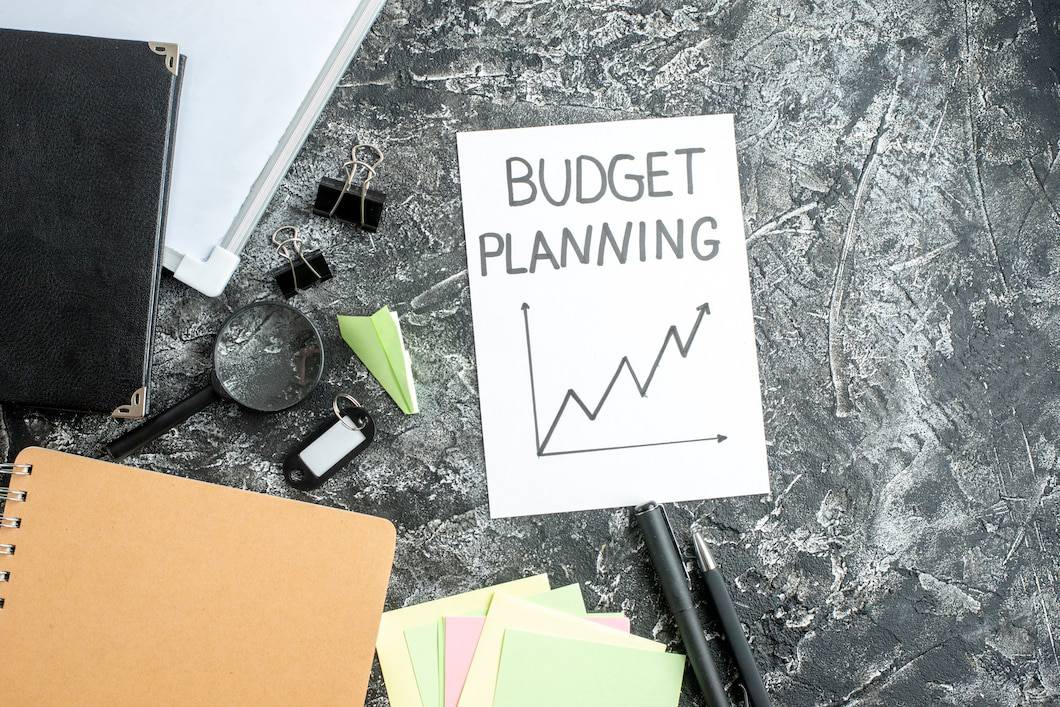
The Best Budgeting Techniques for 2025
In the current economic climate, staying on top of your money is crucial. A good financial plan is essential with the rising cost of living and a volatile economy. The Ultimate Budget Planning Guide for 2025 . Here’s how to do it: best budgeting strategies and effective money-saving techniques for financial stability. Targeting a UK audience, we will show you the latest techniques, provide practical tips and offer expert guidance to help you manage your money effectively.
The Importance of Effective Budgeting

Budgeting is the cornerstone of sound financial management. Set clear financial goals and follow a plan. This helps you control your income and expenses. It also prepares you for future savings and investments.
Why Budgeting Matters
- Financial Clarity: A solid budget clearly shows your finances. It helps you see your spending habits and find areas for improvement.
- Goal Achievement: If you’re saving for a house, planning a trip, or looking to retire well, good budgeting guides you.
- Stress Reduction: Understanding where your money goes lowers financial stress. This knowledge lets you make better decisions.
Understanding the 2025 Financial Landscape
Before diving into budgeting techniques, it’s essential to understand the broader financial context in which we live today. The economic environment in 2025 is shaped by several factors:
1. Economic Uncertainty and Inflation
- Rising Costs: As inflation rises, everyday expenses like energy bills, groceries, and transportation will increase.
- Savings Importance: A good budget is key to handling unexpected price increases in this situation.
2. Changing Work Patterns
- Gig Economy: More people engage in freelance and gig work, leading to irregular incomes. This trend makes it even more important to plan your finances meticulously.
- Remote Working: With remote work becoming the norm, savings on commuting and office expenses might balance out other higher costs.
3. Technological Advancements
- Digital Banking: The rise of digital banking and fintech apps has revolutionised how we manage our money. These tools give you real-time insights. They can also help with your budget planning easily.
- Automation: Automated savings and budgeting tools make it simpler than ever to implement the best budgeting strategies and adopt effective money-saving techniques.
The Best Budgeting Strategies for 2025

Here are some key strategies to consider:
1. Zero-Based Budgeting
Zero-based budgeting involves assigning every pound of your income a specific purpose. This strategy ensures that your income minus your expenditures equals zero, leaving no money unaccounted for.
- Step-by-Step Allocation: List all sources of income and assign them to specific expense categories, savings, or investments.
- Eliminate Waste: This method helps you identify and eliminate unnecessary spending, reinforcing money-saving techniques.
- Adaptability: It is particularly effective for those with fluctuating incomes, such as freelancers or gig workers.
2. The 50/30/20 Rule
The 50/30/20 rule is a simple yet powerful framework that divides your income into three categories:
- 50% for Needs: Allocate half of your income to essentials such as rent, utilities, and groceries.
- 30% for Wants: Use this portion for discretionary spending, including dining out and leisure activities.
- 20% for Savings and Debt Repayment: Dedicate the remaining amount to savings, investments, or debt repayment.
3. Envelope System
The envelope system is a tried-and-tested method in which cash is used for various spending categories. While it might seem old-fashioned, it remains one of the most effective money-saving techniques.
- Cash Allocation: Withdraw your budgeted cash for each category and place it in separate envelopes.
- Visual Tracking: You can easily see how much remains as you spend from each envelope.
- Discipline: This tactile method encourages spending discipline and reduces the risk of overspending.
4. Digital Budgeting Tools
Modern technology offers digital budgeting tools that simplify the process and offer real-time insights into your spending habits.
- Apps and Software: Tools like YNAB (You Need A Budget), Money Dashboard, and others help you track expenses automatically.
- Customisable Budgets: Many apps allow you to customise your budgets according to your specific financial goals.
- Alerts and Reminders: Automated alerts help you stay on track and adhere to your budget planning guide.
Creating Your Budget Planning Guide

A personalised budget planning guide is your roadmap to financial success. Follow these steps to create one that works for you:
Step 1: Assess Your Income and Expenses
- Detailed Tracking: Start by recording all your income sources and categorising your expenses. Use bank statements, receipts, and digital tools to gather accurate data.
- Identify Patterns: Look for patterns in your spending to understand where most of your money goes.
- Set Priorities: Distinguish between fixed expenses (e.g., rent, utilities) and variable expenses (e.g., dining out, entertainment).
Step 2: Set Clear Financial Goals
Your budget planning guide should include both short-term and long-term financial goals. These goals provide direction and motivation.
- Short-Term Goals: Examples include building an emergency fund, paying off a credit card, or saving for a holiday.
- Long-Term Goals: These might involve saving for a home deposit, planning for retirement, or investing for future growth.
Step 3: Choose Your Budgeting Method
Select the budgeting strategy that suits your lifestyle best. Whether you prefer zero-based budgeting, the 50/30/20 rule, or the envelope system, choose the approach that aligns with your spending habits.
Step 4: Implement and Monitor
- Set Up a System: Use digital tools or manual methods to track your progress.
- Regular Reviews: Revisit your budget regularly—monthly or quarterly—to ensure it remains aligned with your financial goals.
- Adjust as Needed: Life changes, and so should your budget. Be flexible and update your budget planning guide as your financial situation evolves.
Money-Saving Techniques to Maximise Your Budget
Effective money-saving techniques can make a significant difference to your financial health. Here are some actionable tips to consider:
1. Cut Unnecessary Expenses
- Review Subscriptions: Regularly assess subscriptions and memberships to ensure you only pay for what you use.
- Cook at Home: Reduce dining out by preparing meals at home. This not only saves money but is often healthier.
- Use Price Comparison Tools: Before purchasing, compare prices online to ensure you get the best deal.
2. Leverage Cashback and Rewards
- Cashback Apps: Use apps that offer cashback on purchases. Over time, these savings can add up significantly.
- Loyalty Programmes: Join loyalty schemes at your favourite stores to earn points and discounts.
- Credit Card Rewards: Choose a credit card that offers rewards or cashback on everyday spending.
3. Shop Smart and Bulk Buy
- Seasonal Sales: Take advantage of seasonal sales and promotions to buy items at a reduced cost.
- Bulk Purchasing: For non-perishable items, buying in bulk can often reduce the per-unit cost.
- Discount Vouchers: Watch for discount vouchers and promo codes, which can provide extra savings.
4. Reduce Utility Bills
- Energy Efficiency: Invest in energy-efficient appliances and light bulbs to reduce energy bills.
- Smart Thermostats: Consider installing a smart thermostat to optimise heating and cooling, particularly during the colder months.
- Insulation: Improving your home’s insulation can reduce heating costs significantly.
Implementing the Best Budgeting Strategies in Your Daily Life
Consistency is key when it comes to effective budgeting. Here are some practical tips for integrating these strategies into your daily routine:
1. Daily Expense Tracking
- Keep a Spending Journal: Note every expense, no matter how small, to stay aware of your spending habits.
- Use Budgeting Apps: Automate the process by using apps that track your transactions in real-time.
- Review Weekly: Set aside time each week to review your expenses and compare them against your budget.
2. Regular Financial Check-Ins
- Monthly Reviews: At the end of each month, evaluate your progress. Check if you’ve met your savings targets and adjust your spending if needed.
- Quarterly Adjustments: Reassess your overall financial plan every three months and update your budget planning guide as necessary.
- Celebrate Milestones: Recognise small wins, whether it’s paying off a portion of debt or increasing your savings rate. Celebrating milestones keeps you motivated.
3. Educate Yourself Continually
- Stay Informed: Read financial blogs, attend webinars, or take online courses on personal finance.
- Follow Experts: Engage with financial experts and influencers on social media who share insights on the best budgeting strategies.
- Experiment: Be open to new money-saving techniques and adjust your approach based on what works best for you.
Tools and Resources for Effective Budgeting
Various tools are available to help you manage your finances more efficiently. Here are some recommended resources:
Digital Budgeting Apps
- YNAB (You Need A Budget): A popular app encouraging proactive budgeting and real-time tracking.
- Money Dashboard: Tailored for UK users, it aggregates all your financial accounts in one place.
- Monzo and Starling: Digital banks that offer intuitive budgeting features and real-time notifications.
Online Budget Planning Guides
- Budgeting Websites: Numerous websites offer comprehensive budget planning guides with downloadable templates and step-by-step instructions.
- UK Government Resources: Government-backed websites provide advice on managing personal finances, which is especially useful for UK residents.
Books and Courses
- Personal Finance Books: Explore titles by experts in budgeting and money management.
- Online Courses: Platforms like Coursera and Udemy offer courses on budgeting and financial planning fundamentals.
The Road Map
Building your road map to financial success begins with a plan. Use a detailed budgeting guide and the top budgeting strategies, and practice these great money-saving techniques. By doing this, you can seize control of your financial future in 2025 and thereafter.
Budgeting successfully isn’t a one-off exercise. It’s an ongoing process. You should study it frequently, modify it, and continue to learn. Be consistent and have the right tools.
Take on the challenge. Control your finances and change your spending habits with expert tips. With determination and the right approach, financial freedom is within reach. Start Today


